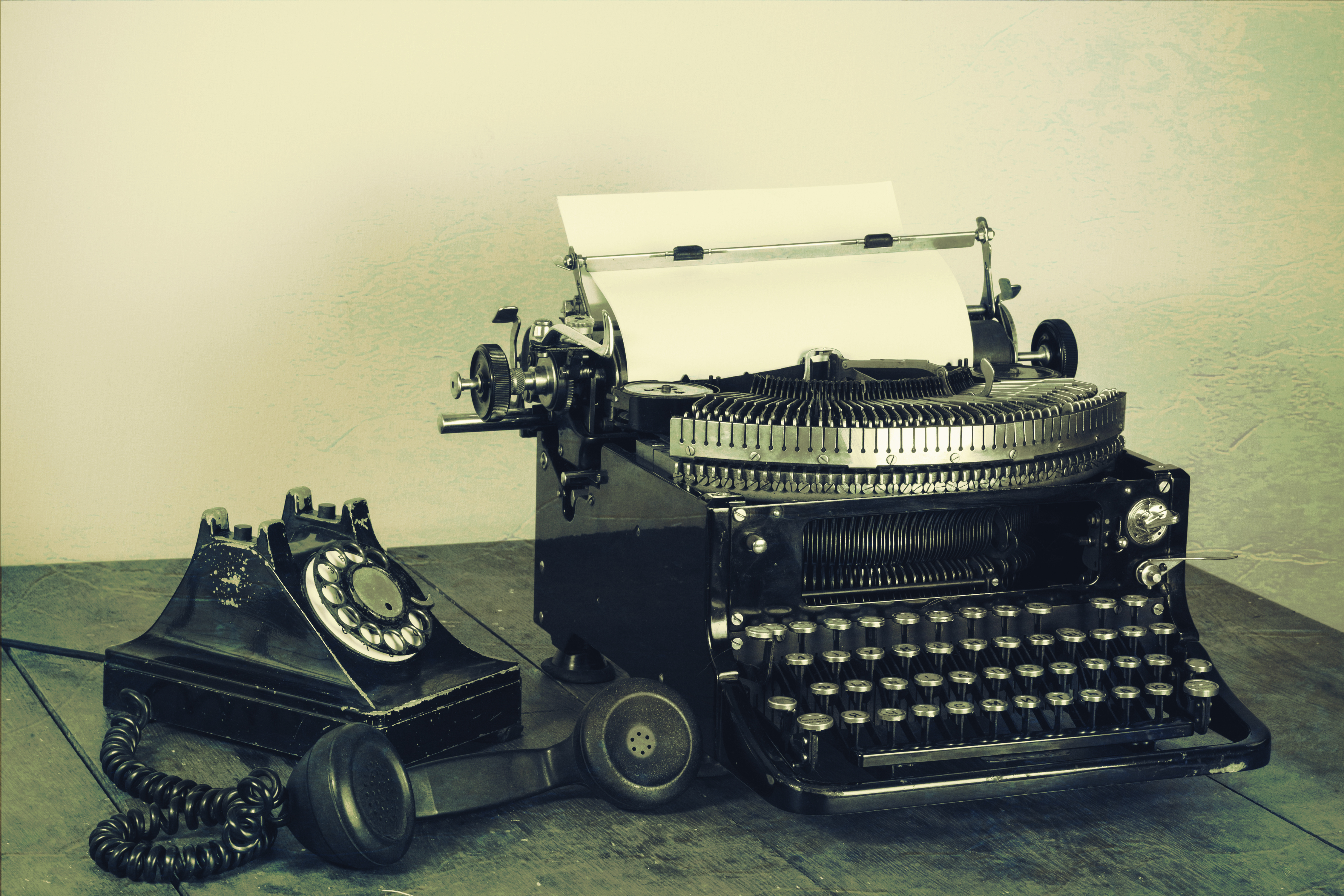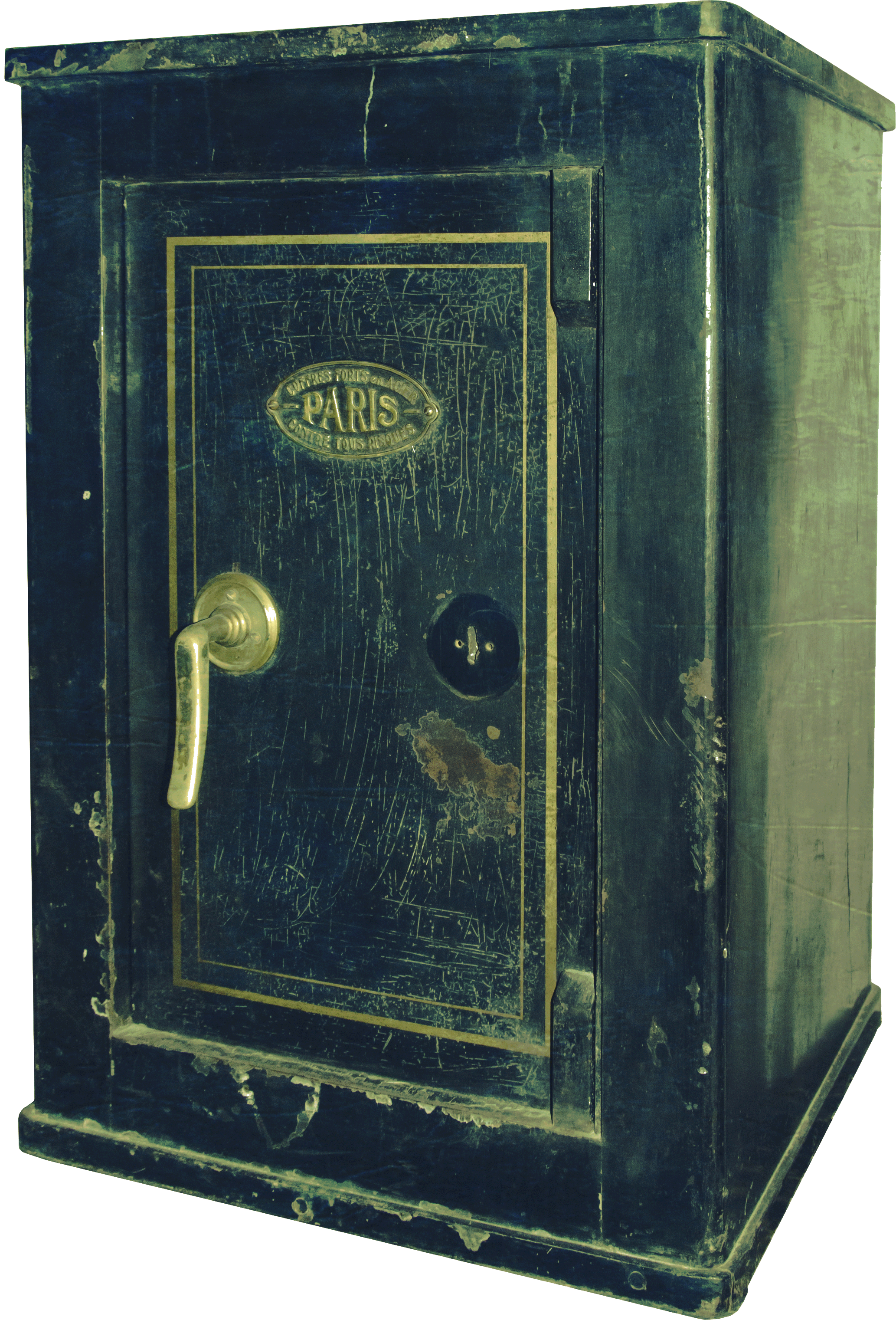How the Apartment Industry changed over the last 50 Years - An Interview
Christopher Dean: The way we do business in the Apartment industry, our tools and resources etc. have obviously changed a lot over the course of 50 years. What are some of the significant changes, differences or trends that have been altered or don’t even exist anymore?
Susan: A big one is the desk telephone. We used to highly value it and always answer the phone. It was our only way of communicating with the outside world.
Mike: That doesn’t exist anymore… another big one was pagers.
Chris: How did people use pagers to manage apartments?
Mike: Maintenance teams depended on their pagers, and were paged at night or during the day when they were needed.
Sharon: We’d page each other to just come to the office.
Foy: Something else that was big and is rarely used today is the master key! It used to be for anybody who needed to access a unit, they used the master key.
Chris: How did master keys work?
Foy: The vendors came to do work, you would just give them the master key. If you wanted to go show apartments, you took master keys to open any door.
Chris: You just gave a master key to any vendor who is doing work?
Terry: There wasn’t a concern for key control. It was just the culture.
Julie: But back then a manager could take the master keys home at night, it was normal. That doesn’t happen today.
Foy: Even as a leasing agent you could because you could get paged for lockouts at night.
Chris: When did it start to change?
Terry: As soon as everyone figured out – “holy crap, everyone has access to everyone’s apartment” - that’s not good. People actually started thinking about liability.
Dennis: Especially the insurance companies. They helped force the changes.
Foy: And thefts. Once the thefts started to increase, key control become an important issue.
Sharon: I remember so clearly the day we got our first fax machine.
Susan: Me too. That was huge. It was scary because it was so new and unfamiliar.
Sharon: Fax machines, and the copier! Before that we used typewriters with NCR and carbon paper. Ledger cards that you wrote on in pencil. So different from today’s technology and the software we have available.
Chris: Before fax machines and the common use of computers and email… how did communities communicate with the management company?
Julie: We had couriers and they would come around every property every day to pick up whatever you had to send to the corporate office.
Susan: I didn’t even have a courier; I took paperwork and deposits to the corporate office myself. I was the only one that was allowed to handle the money and take documents to corporate.
Julie: You had to use the courier if you had to send anything -- There was no email, no fax, none of that.
Sharon: Before computers, everything was on paper.
Dennis: You typically would post notes on doors.
Susan: I had a typewriter when I started. You typed leases on carbon paper. It took a lot more time. If you made a mistake you had to start over! No white out yet even!
Dennis: But now that time is consumed with doing reports on a computer…
Sharon: A big difference is back then there wasn’t formal training.
Terry: There really wasn’t any training at all for a very long time.
Sharon: Absolutely no classroom training. At least I can tell you they didn’t provide training in Greenville, SC.
Dennis: I think the first classes that the Apartment Association had offered were way back in t

he late 60’s. It slowly became known that you could take some training classes at AAMD.
Chris: What other concepts beyond technology have been game changers in a manager’s day-to-day?
Foy: Golf carts. We didn’t have golf carts back then. We simply walked the properties, no matter how big!
Julie: What comes to my mind, is in the 80’s when all of a sudden we had leasing personnel in danger of being assaulted and we had to change security procedures to protect them. We started keeping the drivers license at the desk during a tour and we also incorporated ways to show apartments, so someone couldn’t get behind you.
Terry: Don’t let them get between you and the door.
Sharon: Last names went off of our employee nametags. The nametags only have the first name.
Susan: We had to wear uniforms as office staff. They were issued to us and we had to wear them every day. I had to coordinate between all the properties with the same management company whether we were going to wear pants or skirt. All of us in the office had to wear the same thing each day. So, all office staff sat down once a month and wrote down each day when we would wear pants and when we would wear skirts. Our blouses, vest, jacket and scarfs always matched.
Sharon: The other big changes were fair housing related. It used to be you could pretty much choose exactly who you wanted to live at your community. If you looked at a person and thought, “I don’t want to live next to that person”, you could simply would not approve the application.
Julie: Yes, and it used to be there were specific areas of a community that would evolve --
I remember the family section was over here, and the singles were over there.
Foy: My first property was an adult singles community. We had a bar! You could charge your booze to your rent!
Terry: I remember a property we bought and there were hot tubs everywhere and parties all the time.
Dennis: I ran that property, and it’s still there.
Susan: I managed a property that was all adult on one side, and family on the other. When familial status became a protected class, I had people from Denver Housing Authority at my door making sure that we were trying to integrate adults and families. It was impossible because the all adult side had tennis courts, hot tubs and a bar, the family side had a day care and playgrounds.
Julie: Remember how we used to have photos of swimming pools with girls in bikinis in our advertising? Now they are like- no people in your ads!
Susan: I remember leasing, our goal was to have 100% closing ratio and was shopped monthly. With a perfect shop of 100 we were rewarded for it with lunch at the Broadmoor and a diamond necklace annually.
Don: Do you guys remember your first day on the job?
Susan: I was housekeeping. I started cleaning the laundry rooms and halls. I remember how scary it was because I got flashed my second day on the job in the laundry room.
Sharon: Because they took off their clothes to wash them?
Susan: No, he just stood there and dropped his pants. Should have been my first clue - Why didn’t I run then?
Terry: I remember carrying the blocks and mixing cement in the first apartment community we built in upstate New York in 1959.
Dennis: Wow, you are old.
Mike: I started managing apartments while I was going to college. Somebody told me you could get free rent and didn’t have to do anything, so I signed up...
Foy: We did get free rent as part of our compensation that was much more common versus now where maybe a discount is offered.
Dennis: My actual first day- I was in an interview and the guy lost the boiler heat and it was cold as hell. He said, “do you know anything about boilers,” and I said, “no but I can learn really fast.” So, I went down and got the boiler to run. You had to tinker with it like every 45 minutes to keep it going, so I stayed there all night. Got the job though.
Chris: What surprised you about the industry over the years?
Foy: All the partying! Hasn’t stopped either.
Dennis: I think the biggest thing is the end of the workday used to be later and then you would be on call. So, you could be working all that night too.
Susan: Now, through resident portals- people can text their maintenance tech and send in service requests. But emergencies are still handled the same.
Foy: As a leasing agent, sometimes you’d be given a minimum, and you could charge any amount above that if you could sell it.
Chris: Was that commonplace?
Terry: Actually, it has come full circle. Now with LRO- it’s daily pricing.
Susan: Another difference was we didn’t have 12-month leases. We never had above 6-month leases.
Chris: What are some issues today that you didn’t have to worry about back then?
Sharon: It’s actually a much more difficult business to run today than before.
Chris: With all the technology and new resources, why is it harder today?
Don: Liability and exposure.
Julie: Resident reviews and social media, now resident reviews are a part of every single thing you do. If someone makes a mistake, it is a big deal and everyone knows about it.
Susan: Plus lawsuits, they just didn’t happen at the crazy frequency like they do now.
Dennis: Back then all we had to worry about were cockroaches and maybe a seeing eye dog every once in a while, because we didn’t allow pets.
Mike: The policies and restrictions changed because the market. When things got tough and the market was soft the industry said, “pets? No worries, bring your pets!”.
Terry: It was a competitive advantage to allow pets. Everyone figured it out and started allowing pets.
Susan: It was the 80's when we started accepting pets, and then we started eliminating pets in early 90s before the market crashed. Now it seems like Pets are more part of the apartment culture.
Don: And another opportunity for revenue.
Julie: Another big change is how the industry deals with a death on the property. I remember someone passing away or jumping from the top of a building… and there was blood on someone’s BBQ grill and I just called maintenance to take care of it. We have learned so much since then.

Terry: Crime scene cleanup.
Dennis: I think around the time HIV started, in the mid 80’s… we started handling blood much differently.
Julie: You look back and it was really stupid back then. We made maintenance do crazy stuff.
Mike: For liability reasons, you just can’t touch stuff now.
Susan: You have to be licensed and certified for this kind of task.
Julie: Even mold back then we handled differently. We just cleaned it up with bleach. Now, it all has to be documented and now you have to use a certified professional.
Dennis: Mold, asbestos, lead paint, meth labs. All those things are handled much differently today.
Susan: Nobody wore masks back then either, now we know better.
Chris: What are some other things that exist today that back then you would have never dreamed up:
Julie: Leasing with an iPad - a piece of technology that you carried in your hand! People can lease now without even seeing the unit.
Susan: Professionalism was different then. It was much more casual, even though we had uniforms and we acted professional, we had fun with the residents -- spending time with the residents was a lot easier then too.
Terry: It was less formal for sure.
Sharon: Much more cordial. You just got so involved with your residents to the point where they wanted to keep living at your community.
Don: Much less of a personal touch today.
Sharon: There was more of a sense of community. Everyone knew each other. The on-site team really knew the residents. The residents renewed their leases because they just felt so connected.
Susan: Employees stayed longer. The dedication to your management company was different, to be honest, employees were much more loyal.
Mike: Happy Hour Fridays! Every Friday, we would have more than 100 people come.
Terry: Christmas parties were different too, a lot more booze.
Sharon: Now our employees cannot drink alcohol at resident functions.
Chris: Those don’t happen at all anymore?
Susan: Some communities have beer and wine perhaps in their club room now but they limit them to two a day/evening. My resident parties we had kegs and the residents drank all they wanted and walked home. We didn’t use to think about liability. It was just about retaining residents.
Sharon: Now the fear of liability overshadows every decision we make. Every decision.
Terry: Pool parties may happen occasionally, but there is no booze.
Sharon: If so we require a licensed bartender to serve.
Mike: Communication in general back then was different. Communicating with all your residents. The only way to do it was to leave a note on their door or have them drop by the office. Now you can send out mass texts and mass emails and post on Facebook and there are just a dozen ways to communicate with all your residents. Versus having 100 pieces of paper to stick around the room.
Chris: I was going to ask about resident retention, do you still stick notes on doors when you want them to renew?
Terry: That is a funny subject because I was in the commercial business at one time and we had an office or retail space which took a lot to retenant that space. It takes a lot of money. So, we really looked at tenant retention. I got here in 1991 and that is about when the resident retention business started in the apartment industry.
Don: During segments of the real estate cycle you wanted the turnover, you needed the turnover to upgrade your property and upgrade your rent… and in other segments of the cycle you cannot afford the turnover, you want everyone to stay put.
Susan: It is funny that you say that because all this year I have seen the industry has changed towards next year concentrating on resident retention. Most of the properties I have talked to about goals for 2018 have expressed next year is going to be the year of resident retention.
Chris: Any final stories that you have in your back pocket that you are like, "this story should be told about you time in the industry"?
Terry: We bought a community in 1994, I got there, and they were showing us around and they had this safe in the floor. Everybody had a small safe, because you had to have some cash. Anyway, I asked the manager how much cash the manager had in the safe and she said about $30,000 dollars. I said lock the doors, get a couple maintenance guys, we are going to the bank. Someone would slit your throat for 300 dollars, never mind 30 grand!
Don: The only thing I can think of is Mike chasing someone down the alley to get the keys back from the apartment so we didn’t have to evict her. Back then I think we were the only two people in the building without guns.
Susan: I used to stand at the bus stop when I was working at a community in Montbello with my 6.5 foot security guard and would collect rent as they got off the bus because I knew they got paid the day before or their checks came in… stood there and collected rent, went to the bank and then we waited for the next bus. That is the way we collected rent at that community…
Dennis: As a marketing angle we offered free bus service in Boulder. We painted the buses psychedelic colors, and would not only pick up students who lived in the apartments but also people from businesses too. We would just roll around Boulder letting people on and off. One day a bunch of students got on the bus, they took all their clothes off on the bus, and went streaking! The bus driver didn’t know what to do so she just kept driving around and all the students got off at the campus naked and ran off. It was the weirdest thing.
Chris: Well, I guess that’s a good way to end the conversion about our last 50 years. A bunch of naked people jumping off of a bus. Thanks to everyone for helping provide a unique glance at our industry’s history.

